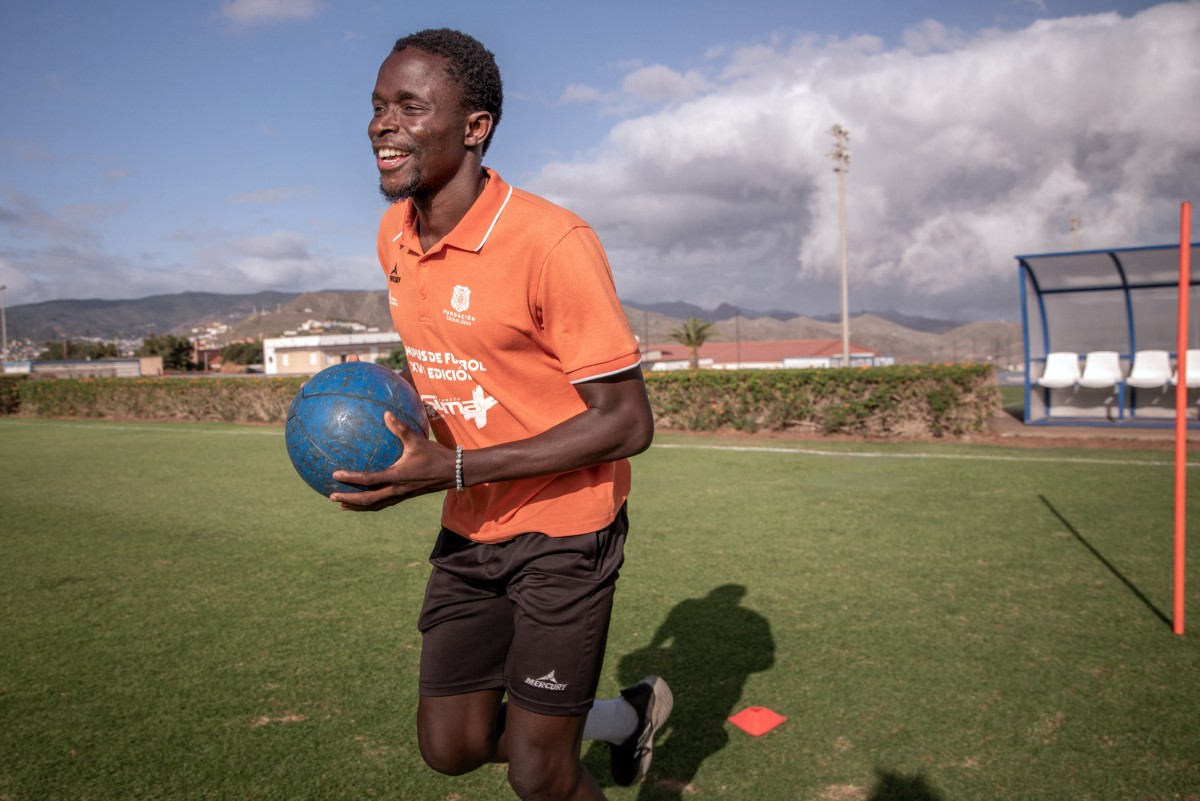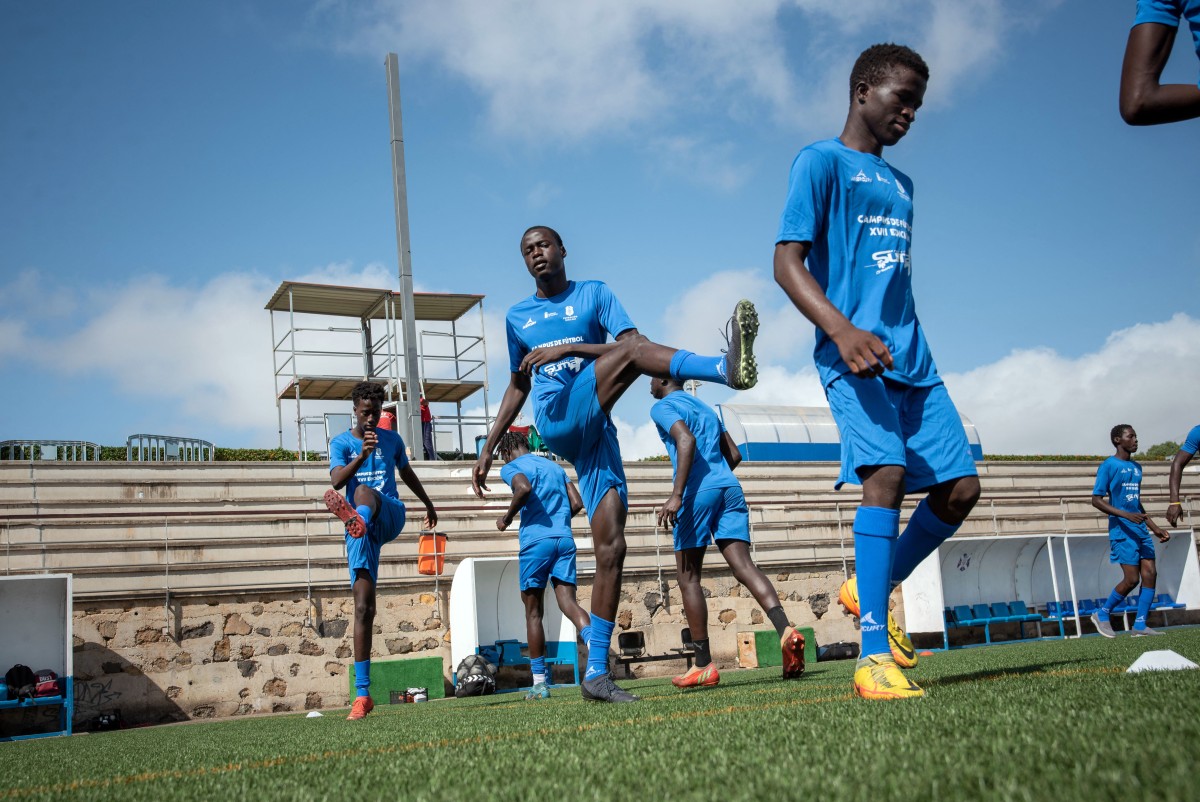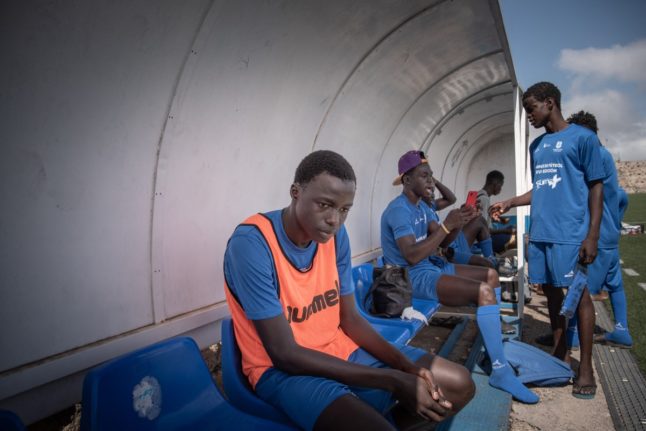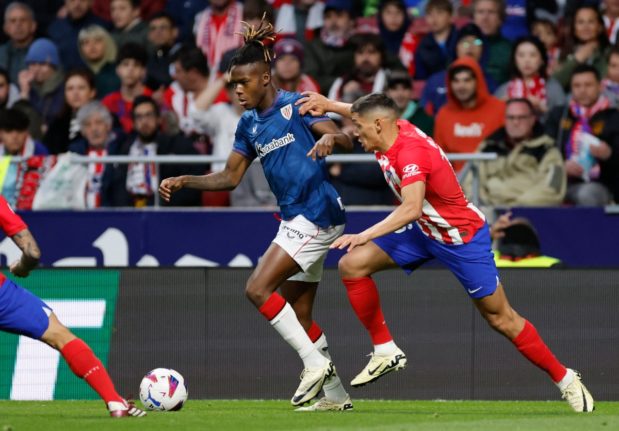When Younousse Diop was just 13, he said goodbye to his family in Senegal and boarded a packed boat bound for Spain’s Canary Islands, part of the influx of migrants to the Atlantic archipelago.
“There were 110 of us. It was hell. The nights are hard, the days are hard,” the 30-year-old told AFP on the island of Tenerife, where he arrived in 2006
“You board the boat and the first thing you think of is death, the fear of dying. You leave your family and you think: ‘will I die or arrive?'”
Now Diop is a coach in a programme that uses football to help migrant minors who — like him — arrived in the archipelago without their parents to overcome the ordeal of their perilous sea crossing and integrate into Spanish society.
Run by CD Tenerife, a football club that plays in Spain’s second tier, and the University of La Laguna, the programme has offered weekly training sessions for dozens of unaccompanied minors from nations such as Senegal, Morocco and Mali since its launch in 2021.
Diop joined the youth team of CD Tenerife after his skills were spotted during a match at the migrant reception centre where he was staying, and then played for clubs in the Spanish third and fourth divisions.
At the programme’s training sessions, he said he encourages minors to follow their dreams — whether it is to become a footballer or a mechanic.
“What they need above all is to be heard, that we take their hand and look at them. They need affection, a psychologist and to quickly get in touch with their families,” he added.

‘Traumatic event’
Over 23,000 migrants have reached the Canary Islands so far this year, an 80 percent increase from the same period last year, according to interior ministry data.
If the current pace of arrivals continues, the seven-island archipelago located off the northwest coast of Africa could exceed a record set in 2006 — the year Diop arrived – when around 32,000 migrants reached the Canary islands.
The crossing, which is often deadly, “is the most traumatic event they have faced, often more traumatic than what they have experienced in their home countries,” said Francisca Ortíz, a psychologist with CEAR (the Spanish Commission for Aid to Refugees), a non-governmental organisation.
Helping them feel better is hard because they don’t know what a psychologist is, she added.
Migrant minors who arrive in Spain without their parents are looked after in state-run reception centres while their petitions for asylum are studied.

‘Survivors’
The vast majority do not speak Spanish, which adds to the challenge of trying to help them, said Antonio Rodríguez, a psychology professor at the University of La Laguna who is involved in the project.
The programme, dubbed “Sansofe,” which means “welcome” in a now extinct aboriginal language of the Canaries, tries to find football clubs on the island where the youths can play, he said.
“The aim is to help them to integrate, that they get ahead,” Rodríguez said, adding that “football attracts everybody”.
“If we put ourselves in their place, and we think of what they went through to get here…they left their homes to venture on a tragic journey. These boys are survivors,” he said.
On a recent morning, around 15 youths kicked a ball around a pitch under a blazing sun. A coach called out instructions, using a whistle to get their attention and exaggerating his hand gestures to be understood.
Mamadou Ndoye, a 17-year-old who arrived in the Canaries two years ago from Senegal after 11 days at sea, helps to translate Wolof — one of the languages spoken in Senegal — into Spanish.
A fan of Real Madrid, Ndoye dreams of being a professional footballer.
He does not like to talk about the sea crossing, but breaks out into a smile when he talks about football, which he said “makes us happy since we are little.”



 Please whitelist us to continue reading.
Please whitelist us to continue reading.
Member comments